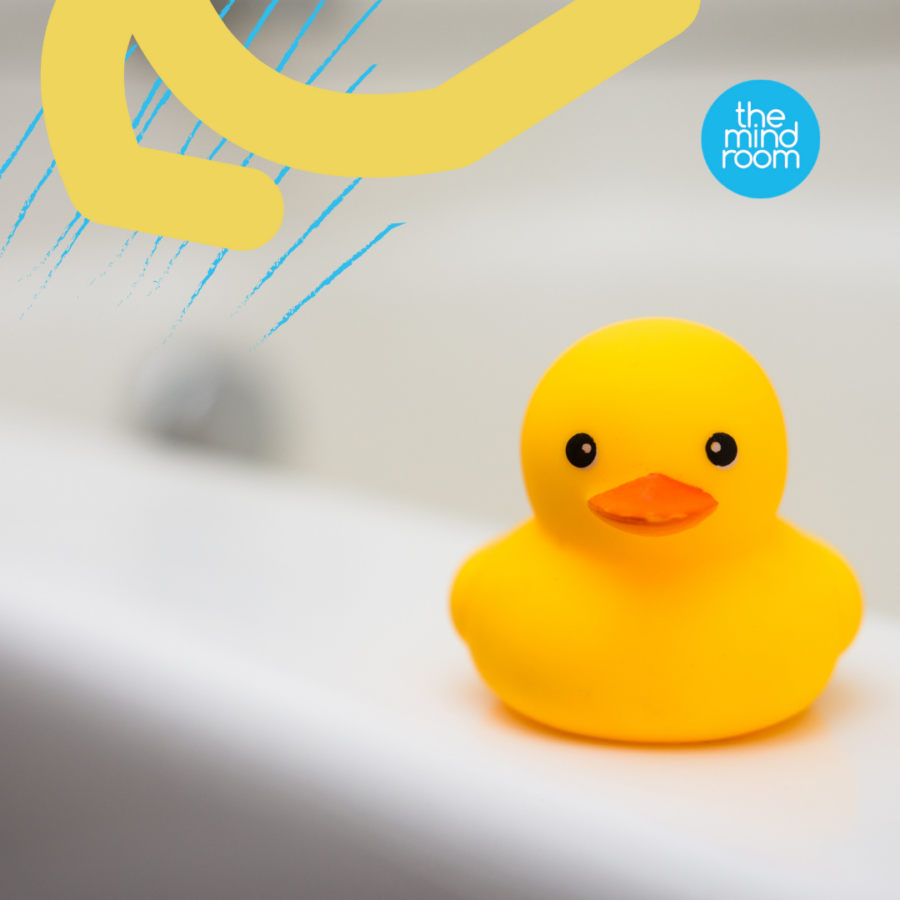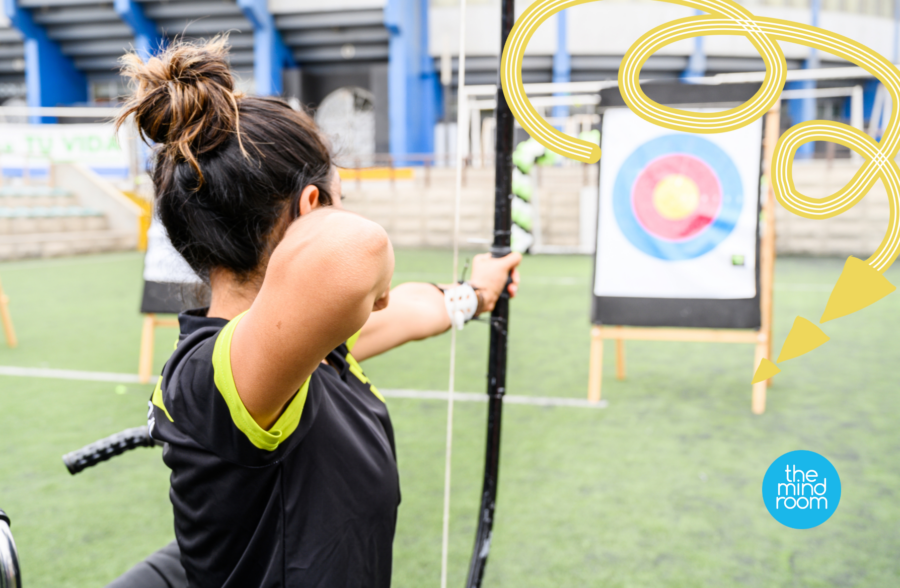Resetting For The New Year

Dr Jo MitchellConsider this your invitation to press reset, to prioritise what truly matters, and to empower yourselves to live your best, most fulfilling life.
As we inch closer to the end of the year, it’s apparent that many of us are running on fumes. Whether it’s a coffee chat, a quick office catch-up, or a casual conversation with friends, there’s a common thread in our discussions: exhaustion.
The relentless swirl of work demands, economic pressures, and social upheavals has left us feeling more drained than ever, casting a shadow of collective fatigue and uncertainty over the future.
But as we soak up the warmer months and long days, we’re given a moment to pause and reflect. The turn of the year provides a natural opportunity to reset – to reassess how we live, work, and take care of ourselves, and ultimately to move from simply surviving to truly thriving.
Before we dive into strategies for resetting and thriving, let’s unpack why so many of us feel this way in the first place. The exhaustion we feel isn’t just due to some personal failing. It’s also symptomatic of larger societal forces.
WHY AM I SO TIRED?
For years, burnout has been a growing issue, but the pandemic years worsened it considerably. Research conducted in the wake of COVID-19 has revealed a significant rise in self-reported symptoms of burnout, including chronic stress, emotional fatigue, and a sense of detachment from work.
In fact, Microsoft’s 2022 Work Trend Index found that Australian workers experienced higher rates of burnout than their global counterparts.1 Around 62% of Australian workers reported feeling burned out, compared to the global average of 48%. The situation was even worse for managers, with 66% of Australian managers grappling with burnout, compared to 53% globally.[1]
Much of this stress stems from the increasingly blurry line between work and personal life. With technological advancements, employees are more accessible than ever, and often expected to be available outside of traditional hours. This constant connection has led to an ‘always on’ culture, where work spills over into personal time.
Recognising this, the Australian Parliament recently passed a Fair Work Bill amendment that grants employees the ‘right to disconnect’ from their employers outside of work hours.[2] But this is only one piece of the puzzle.
Workers also report feeling overwhelmed by constant distractions – emails, notifications, and an overload of meetings. While hybrid working arrangements have offered some relief, they’ve been tempered by what’s now dubbed ‘productivity paranoia’ – the fear among employers that workers might not be doing enough when not physically in the office. This paranoia has created a need for a broader cultural shift if we’re to adapt to the changing world of work in a sustainable way.
THE ECONOMIC SQUEEZE
The invisible weight of financial stress is another major contributor to the pervasive sense of exhaustion. Rising living costs, coupled with stagnant wages, mean many Australians are working harder for less.
According to the Australian Bureau of Statistics, real wages in 2024 declined by 2.5%, while the cost of living increased between 3.3% and 6.5%, depending on the household.[3] Employee households, in particular, have been hit hard by this economic squeeze. This financial strain leaves little room for rest, recovery, or even hope for improvement.
What’s particularly damaging is the mental toll of financial instability. It erodes self-worth and can lead to sleepless nights, anxiety and depression. Compounding this is the sense of shame that often comes with financial struggles, which prevents many from seeking help. As more Australians feel this pinch, it’s becoming a widespread, yet under-discussed contributor to the country’s mental health crisis.
GLOBAL EVENTS AND UNCERTAINTY
It’s not just personal or financial struggles that wear us down. Political instability, environmental crises, and social unrest also play significant roles in shaping our collective mental health.
Australia, in particular, has felt the weight of global events. The devastating bushfires of 2019–2020, followed by the COVID-19 pandemic, left many Australians grappling with anxiety and stress. More than half of the population reported experiencing mental health distress during the pandemic, and that sense of vulnerability has lingered.
Climate change remains a persistent worry for Australians, as the country continues to face extreme weather events like droughts, floods, and fires. These events not only wreak financial havoc but also take a heavy emotional toll, particularly on regional and agricultural communities.
Social unrest, too, has added to the strain. Movements such as #MeToo, debates around immigration, and the ongoing fight for LGBTQIA+ (lesbian, gay, bisexual, transgender, intersex, queer/ questioning, asexual) rights have brought long-simmering tensions to the surface. For many Australians – particularly those from marginalised communities – these issues are not just political but deeply personal, heightening feelings of stress and uncertainty.
ENVY, ANGER, AND FEAR ON SOCIAL MEDIA
Adding to this cocktail of stress is the omnipresence of social media. Platforms that should foster connection often amplify the negative. The algorithms driving these platforms are designed to keep us engaged by pushing emotionally charged content, which often provokes outrage or anger.
The impact is clear. Prolonged exposure to this flood of negative news and social comparison leads to heightened anxiety, envy, and anger. A Washington Post investigation found that posts that evoked anger were more likely to be shared, creating a vicious cycle where outrage becomes the primary emotion driving social media engagement. [4]
In recent years, ‘hustle culture’ has dominated these social media platforms, celebrating overwork and portraying success as the reward for relentless grind. While ambition is admirable, this glorification of achievement at any cost can leave us feeling like we are never good enough and constantly depleted.
RESETTING: FROM SURVIVING TO THRIVING
Given all these pressures, it’s time to consider how we can adapt. Rather than just aiming to survive, we need to shift our mindset toward thriving. But how do we do that? How can we reframe our approach to life and work in a way that prioritises our mental wellbeing?
One powerful psychological concept that can help is psychological flexibility, a core principle of Acceptance and Commitment Therapy (ACT). This involves adapting to life’s challenges while staying true to our core values. It’s about accepting that while stress and discomfort are inevitable, we can still act in ways that align with what truly matters to us.
In practice, this might mean taking a step back from the relentless pursuit of productivity and instead focussing on what gives your life meaning. It might mean setting boundaries at work, saying no to requests that don’t align with your values, or carving out time for activities that nourish you – whether that’s spending time with loved ones, engaging in creative hobbies, taking a walk in nature, or simply taking a moment to breathe.
MINDFULNESS AND THE ART OF TUNING IN
While mindfulness has become a buzzword, its impact is real. By tuning into the present moment, we can become more aware of our thoughts, feelings, and behaviours, allowing us to respond to challenges with greater clarity and calm.
Vietnamese Zen master Thich Nhat Hanh said,
Thich Nhat HanhMindfulness is to be aware of what is going on – in your body, in your feelings, in your mind, and in the world.
By paying attention to our inner world, we create the possibility for change. Instead of running on autopilot, we can choose actions that are aligned with our values.
Incorporating mindfulness into your daily routine doesn’t have to be complicated. Simple practices like mindful breathing, journaling, or using apps like Headspace or Insight Timer can make a significant difference in reducing stress and improving mental clarity.
CLARIFYING VALUES, SETTING GOALS, TAKING ACTION
One of the strongest predictors of wellbeing is living in alignment with your values. Values are our guiding principles, the internal compass that directs our decisions and actions. By identifying and living according to our values, we give our lives purpose and direction.
As you set goals for the year ahead, think about which areas of life – health, family, career, finances, faith – are most important to you, and align your goals with your core values. Each of us has our own values blueprint, for example you may resonate with values such as achievement, freedom, power, curiosity, adventure, or safety.
As former First Lady of the United States, Michelle Obama has said,
Michelle ObamaAs long as I hold fast to my beliefs and values, and follow my own moral compass, then the only expectations I need to live up to are my own.
As you clarify your most important life values, it becomes easier to identify actions that do not serve you and to hold your boundaries with clarity and confidence. When goals are value driven, they become more meaningful and motivating, even when the going gets tough.
BUILDING RESILIENCE AND PRACTISING SELF-COMPASSION
Resilience is about more than just toughing it out. It’s about how we respond to adversity, how we adapt to change, and how we recover from setbacks. One of the most effective tools for building resilience is self-compassion.
Self-compassion means treating yourself with kindness, care, and understanding – especially during tough times. It’s recognising that struggles and failures are a normal part of life, and offering yourself the same grace you’d extend to a close friend.
In practice, self-compassion could mean giving yourself permission to rest when you’re overwhelmed, speaking kindly to yourself after a mistake, or reaching out for support when needed. It’s about recognising your humanity and accepting that it’s okay not to have everything figured out.
THE POWER OF COMMUNITY
While individual resilience is key, community support is just as vital. We are social creatures, and our wellbeing is deeply tied to our relationships. Studies consistently show that strong social connections are one of the most powerful predictors of happiness, health, and longevity. [5]
As we enter a new year, prioritising relationships – both personal and professional – will be key to maintaining mental sustainability. This might mean spending more time with loved ones, joining new social groups, or fostering a supportive culture at work.
As Adam Goodes, former Australian Rules football player and Indigenous rights advocate, has said,
Adam GoodesIn times of hardship, it’s our connection to each other that brings us strength. We’re stronger together, no matter the challenge.
As you deepen your connections with people in your life, you may also find yourself feeling the need to step back from social media. The relentless exposure to distressing news, coupled with the pressure of social comparison, can take a toll on your mental health and wellbeing. Instead, consider shifting your focus towards spending more time offline – immersing yourself in the present moment.
Prioritise activities that you genuinely care about, whether it’s engaging in meaningful conversations, pursuing a hobby, or simply enjoying time with loved ones. By making this shift, you can foster stronger, more fulfilling relationships and create a sense of balance and peace that social media often disrupts.
LOOKING AHEAD
As we face the challenges of modern life, it’s important to remember that we have more control over our health and wellbeing than we often realise. By taking steps to tune into ourselves, clarify our values, set meaningful goals, and build resilience through compassion and connection, we can create a life that’s not just about getting by – but about thriving.
Consider this your invitation to press reset, to prioritise what truly matters, and to empower yourselves to live your best, most fulfilling life.





